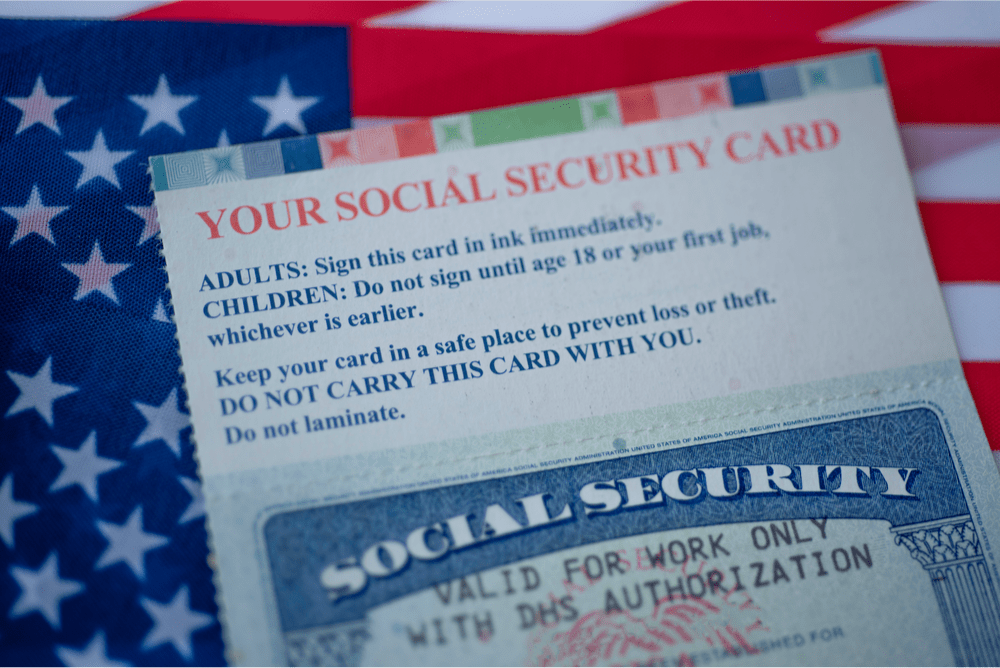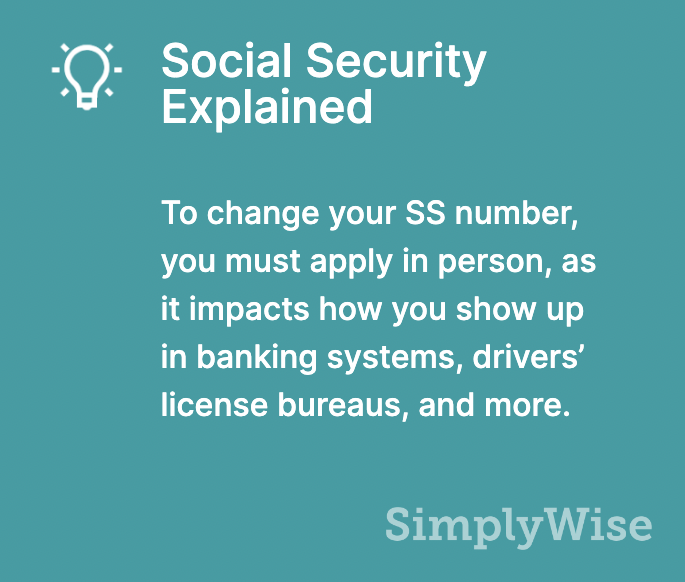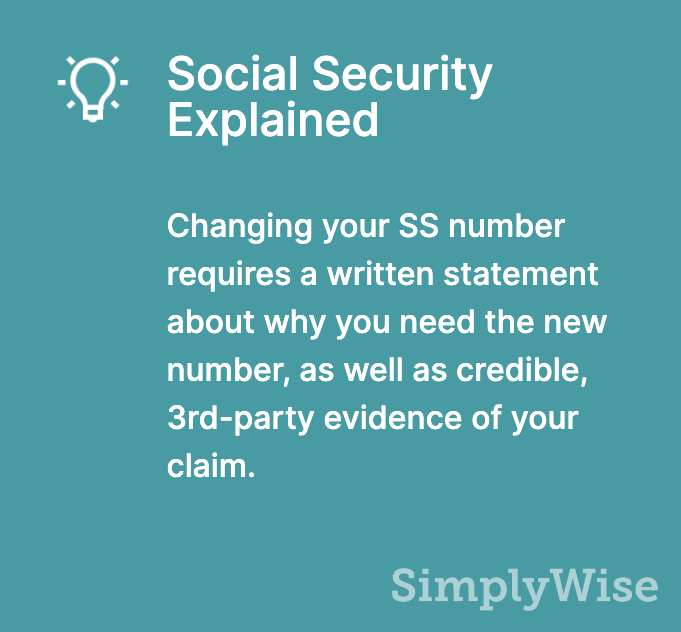
Most people just get their Social Security numbers, memorize them (for all the times they’ll be asked) and go about their lives. It’s kind of like a driver’s license picture—it may not be your favorite, but it serves the purpose. But there are times when people need a new Social Security number. People fleeing domestic abuse, people who have been the victims of identity fraud, or people whose numbers are being used by others may have a legitimate reason to change their numbers. The fact is, changing your number can impact how you show up in banking systems, drivers’ license bureaus and other places, so the Social Security Administration requires people to apply in person: an option that’s not available when offices are shut down because of COVID-19.
The Social Security system doesn’t make it easy to change your number, for many reasons. Some people only want to change their number to escape debt or prosecution from a crime. Even if your reason for wanting to change your number is legitimate, several problems can arise from giving people a new Social Security number. For example, you may have trouble getting a U.S. Passport or getting state aid because it’s more difficult to verify your identity. And your Social Security number is already part of your record for so many things including medical records, business records, and legal records, so much of your history connects to that number. Finally, the SSA system works by pairing one person to one number. If the numbers were too easy to change the system would be less effective. But if you really need to change your number, this is how you do it:
1. Have one of the acceptable reasons for a new Social Security number
The Social Security Administration will only dole out new numbers to people in specific circumstances including:
- Sequential numbers assigned to members of the same family are causing problems. If your name is Brenda Smith and your sister Barbara has a nearly identical SS number, causing your credit scores, legal statuses, tax records or other important identifiers to get confused a lot, you may be eligible.

- More than one person is assigned or using the same number. This doesn’t happen that often, but it does happen.
- You’re a victim of identity theft and you continue to have problems because you’re using the number that was employed in the fraud.
- You’re being harassed, abused, or your life is in danger as in domestic abuse situations.
- You have religious or cultural objections to certain numbers or digits in the original number.
2. Identity Fraud: Take other steps first
Just having your Social Security number stolen or lost doesn’t constitute a reason to get a new number. In fact, the Social Security Administration points out that even if you are the victim of identity fraud, just getting a new number won’t solve the problem. Instead, you must first follow the recommendations listed in the SSA publication Identity Theft and Your Social Security Number. Protecting your credit and other records requires you to take many steps including contacting the Internal Revenue Service and Federal Trade Commission, and Internet Crime Complaint Center. Showing that you’ve taken all those steps will be an important consideration when the SSA considers granting you a new number.
3. Get documentation to support your need
You need to write a statement about why you need the new Social Security number; the Social Security office may be able to help you with this. Your statement must include current, credible, third-party evidence of your claim. For example, if you’re changing your number to protect you from domestic violence you may need
- Police reports.
- Medical records of injuries.
- Restraining orders.
- Letters from shelters, counselors, friends or family members with direct knowledge of the situation.
If you’re requesting new numbers for any children, you’ll need to show documents proving you have custody of the children and documentation of their ages, identities, and U.S. citizenship.
If you need a new number because you have religious or cultural objections to numbers or digits in your original number, you would need written documentation from a religious group with whom you have an established relationship.
The Social Security Administration won’t necessarily issue you a new number just because you have experienced identity theft. Your statement must include documentation to show that:
- Your number is being used for fraudulent transactions.
- You are suffering ongoing harm because of it (such as a lowered credit rating or loan denial).
- You have exhausted all other means at your disposal to solve the problem

4. Fill out an application to change your Social Security number
You’re going to need to go into a local office to complete your application process (more on that below), but you can get started by filling out the application online.
5. Gather documents that prove your identity
These must be original documents establishing:
- U.S. citizenship or work-authorized immigration status
- Age
- Identity; and
- Evidence of a legal name change, if appropriate. In fact, if you plan to change your name, you should do that first, before seeking to get a new Social Security number.
6. Go to the Social Security office
You must contact your local Social Security office for an in-person appointment.
NOTE THAT DURING THE COVID-19 OUTBREAK, OFFICES ARE TEMPORARILY CLOSED. YOU WILL NEED TO WAIT UNTIL THEY REOPEN.
Before applying for a new number, the American Association of Retired Persons recommends you consider putting a block on your number, which prevents anyone, including yourself, from accessing your Social Security information online or by phone. You can lift the block when you want by contacting Social Security.
If you do need a new number, know that the SSA won’t destroy the original one. They cross-reference the new one with the original one to make sure you get credit for all your earnings under both numbers. But you shouldn’t use the old number anymore.
And if you do qualify for a new number the Social Security representatives will be happy to help you understand what you need to do to secure one.